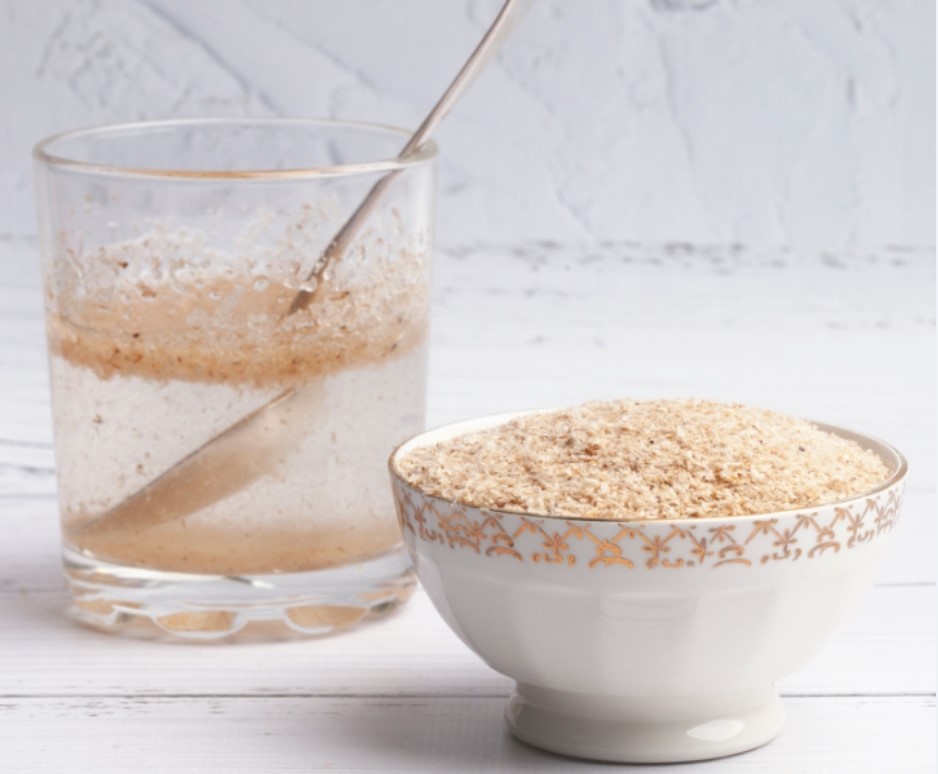As we age, keeping our minds sharp becomes just as crucial as maintaining physical health. Memory exercises for seniors are specialized activities designed to stimulate cognitive function, enhance mental agility, and preserve brain health throughout the aging process.
These exercises work by creating new neural pathways and strengthening existing connections in your brain. Think of it as a mental workout routine – just like your muscles need regular exercise, your brain requires consistent stimulation to stay fit and functional.
In this comprehensive guide, you’ll discover effective memory-boosting activities that can easily fit into your daily routine:
- Brain Games – From chess to crosswords
- Novel Brain Challenges – Using your non-dominant hand
- Memorization Techniques – Methods to enhance recall
- Creative Activities – Music, art, and writing
- Physical Exercise – Movement for better brain health
- Social Engagement – Connection for cognitive wellness
Whether you’re looking to maintain your current cognitive abilities or enhance your mental sharpness, these evidence-based exercises can help you achieve your goals. Let’s explore each approach in detail to help you build a personalized memory-enhancement routine.
Physical Exercise: More Than Just a Body Workout
Incorporating regular physical exercise into your routine is not only beneficial for maintaining physical health but also plays a significant role in enhancing mental agility. Exercise increases blood flow to the brain, promoting the growth of new neurons and improving memory.
Creative Activities: A Gateway to Enhanced Memory
Engaging in creative activities such as music, art, and writing can also significantly boost memory. These activities stimulate different parts of the brain, fostering new connections and improving overall cognitive function.
Novel Brain Challenges: Flexibility in Thinking
Trying out novel brain challenges like using your non-dominant hand can create new neural pathways, enhancing mental agility. This kind of exercise forces the brain to adapt and learn anew, which is excellent for memory retention.
Social Engagement: The Cognitive Wellness Connector
Social engagement is another vital aspect of maintaining cognitive wellness. Regular interaction with others stimulates mental processes and can even ward off depression and anxiety, both of which can negatively impact memory.
Understanding Medications’ Impact on Memory
It’s also important to understand how certain medications can affect memory. For instance, medications like Ozempic have been linked with prolonged fullness after meals which might lead to dietary changes affecting cognitive function. Furthermore, they may also cause gastrointestinal side effects including bowel injuries that could indirectly impact overall health including mental well-being.
Conversely, medications such as Ketamine have shown promising results in treating anxiety disorders with quick onset, potentially alleviating some cognitive burden associated with anxiety.
Lastly, if you’re considering weight loss medications like Wegovy while managing alcohol consumption, it’s essential to understand their interactions so you can make informed decisions about your treatment plan.
1. Brain Games
Brain games are great for your mind. They help create new pathways in your brain and strengthen existing ones. These fun activities challenge your thinking skills, keeping your mind sharp and memory strong as you get older.
Let’s take a look at three popular brain games and what they can do for you:
1. Chess
- Enhances strategic thinking and planning abilities
- Improves pattern recognition and memory recall
- Develops problem-solving skills
- Potential drawback: Steep learning curve for beginners
2. Crossword Puzzles
- Strengthens vocabulary and language skills
- Boosts memory through word association
- Provides regular mental stimulation
- Potential drawback: May become repetitive for experienced puzzlers
3. Sudoku
- Sharpens logical reasoning
- Improves short-term memory
- Increases concentration and focus
- Potential drawback: Can be frustrating for those who struggle with numbers
These games come in different levels of difficulty, so you can start at a level that feels comfortable for you and gradually challenge yourself as you get better. Studies show that spending 15-30 minutes each day on brain games can lead to noticeable improvements in how your mind works.
However, while focusing on mental health, we must not overlook the importance of physical health, including gut health which can significantly impact overall well-being. For instance, Intestinal Methanogen Overgrowth has been linked to various health issues such as constipation. Understanding the role of gut microbes in such conditions can help in managing them effectively.
You can find these brain games in various places:
- Traditional paper formats like books or newspapers
- Mobile apps that you can download on your phone or tablet
- Online platforms where you can play games directly on your computer
- Community centers that offer game sessions or classes
- Local senior groups that organize game activities
The key to getting the most out of these games is to practice regularly and gradually increase the difficulty level as you become more skilled.
2. Novel Brain Challenges
Your brain thrives on new experiences and challenges. When you engage in unfamiliar activities, you create fresh neural pathways that enhance cognitive function and memory retention.
Using Your Non-Dominant Hand
Try these daily activities with your non-dominant hand:
- Brushing your teeth
- Writing short notes or journaling
- Using eating utensils
- Drawing simple shapes
- Operating your computer mouse
These exercises force your brain to adapt and create new connections between neurons, strengthening cognitive flexibility and coordination.
Additional Brain-Challenging Activities
- Learn to juggle with soft balls or scarves
- Practice mirror reading using simple texts
- Try new routes to familiar destinations
- Learn basic phrases in a foreign language
- Rearrange familiar objects in your living space
Benefits of Novel Brain Challenges
- Improved hand-eye coordination
- Enhanced problem-solving abilities
- Increased mental flexibility
- Better spatial awareness
- Strengthened neural connections
Research shows that engaging in these unconventional activities can help maintain cognitive function and delay age-related memory decline. The key lies in consistently introducing new challenges to your daily routine.
However, it’s essential to remember that maintaining overall health plays a significant role in cognitive function as well. For instance, weight management medications like Phentermine and Ozempic can be effective tools in achieving a healthier weight, which in turn can positively impact brain health.
In addition, incorporating practices such as a 96-hour fast can enhance gut health and boost weight loss effectively, further supporting cognitive function.
Moreover, during seasonal changes when our immunity may wane, it’s beneficial to adopt some proven ways to boost immunity through diet, vitamins, probiotics, and lifestyle adjustments.
Lastly, for those managing diabetes alongside these cognitive challenges, exploring options like Sublingual Semaglutide, a non-invasive treatment that enhances patient compliance and promotes weight loss effectively, could be advantageous.
Pro Tip: Start with simple tasks and gradually increase complexity as you become more comfortable. This progressive approach helps build confidence while maintaining the cognitive benefits of these exercises.
3. Memorization Tasks
Memorization tasks are powerful mental exercises that help seniors maintain their cognitive abilities. These exercises strengthen both short-term and long-term memory through active practice and engagement.
Effective Memory-Building Techniques:
- The Story Method: Create a narrative linking items you need to remember. For example, turn a grocery list into a short story: “The milk spilled on the bread, which landed on the eggs.”
- Visual Association: Connect items to vivid mental images. Picture a giant banana dancing with a toothbrush to remember both items on your shopping list.
- Chunking Information: Break long sequences into smaller, manageable groups. A phone number becomes easier to remember when split: 555-867-5309.
Practical Daily Memory Exercises:
- Create acronyms using first letters of words you need to remember
- Practice recalling details from newspaper articles you’ve read
- Memorize short poems or song lyrics
- Learn new recipes without referring to written instructions
- Remember names by associating them with physical characteristics
These memory techniques become more effective with regular practice. Start with simple tasks and gradually increase complexity as your memory strengthens. Combine these exercises with your daily routines – memorize your shopping list instead of writing it down, or challenge yourself to remember birthdays without checking your calendar.
Additionally, incorporating relaxation techniques into your routine can further enhance your memory retention by reducing stress and improving overall cognitive function.
4. Engaging in Creative Pursuits
Creative activities spark neural connections and activate multiple brain regions, making them powerful tools for maintaining cognitive health in seniors. Let’s explore specific artistic pursuits that can enhance memory and mental agility:
Music Engagement
- Learning to play a musical instrument challenges memory and coordination
- Singing in choirs combines social interaction with memory exercise
- Dancing to music improves spatial awareness and recall abilities
Reading and Literary Activities
- Book clubs stimulate critical thinking and memory through discussion
- Writing personal stories or poetry strengthens recall of life experiences
- Reading different genres expands vocabulary and comprehension skills
Theater and Performance Arts
- Memorizing scripts builds strong recall abilities
- Acting exercises emotional memory and expression
- Improvisational activities sharpen quick thinking and response time
Visual Arts
- Painting and drawing enhance visual memory
- Pottery and sculpture develop spatial awareness
- Photography exercises observational skills and detail retention
Group-based artistic activities provide additional benefits:
- Peer feedback enhances learning and retention
- Shared experiences create memorable emotional connections
- Regular scheduling helps build consistent cognitive exercise habits
- Social bonds reduce stress and support brain health
These creative pursuits can be adapted to different skill levels and physical abilities, making them accessible for seniors at various stages of their journey. Many community centers and senior living facilities offer structured programs in these activities, providing both guidance and social connection opportunities.
In addition to these creative pursuits, adopting a plant-based diet can also contribute significantly to long-term health benefits. A balanced, nutritious lifestyle is crucial for maintaining cognitive health, making it essential to consider dietary choices alongside engaging in stimulating activities.
5. Staying Physically Active
Physical exercise doesn’t just strengthen your body – it’s a powerful tool for maintaining brain health. Research shows that regular physical activity increases brain volume and enhances memory function in older adults.
Recommended Physical Activities for Brain Health:
- Walking: A daily 30-minute walk can boost blood flow to your brain
- Swimming: Low-impact exercise that engages multiple muscle groups
- Tai Chi: Combines physical movement with mental focus
- Chair yoga: Gentle stretching that improves flexibility and balance
- Dancing: Combines physical activity with social interaction and memory work
Exercise Benefits for Brain Function:
- Increased oxygen flow to the brain
- Better sleep quality, which supports memory consolidation
- Reduced risk of conditions that affect cognitive health
- Enhanced production of brain-derived neurotrophic factor (BDNF)
- Improved mood and reduced stress levels
You can start with just 10 minutes of activity per day and gradually build up to 150 minutes per week. The key is choosing activities you enjoy and can maintain consistently. Simple activities like gardening, house cleaning, or playing with grandchildren count toward your daily physical activity goals.
Remember to check with your healthcare provider before starting any new exercise routine. They can help you create a safe, personalized plan that accounts for your current fitness level and any health conditions.
Incorporating wellness into your lifestyle is also crucial. For instance, understanding women’s health can empower you with insights and tips for better health. Moreover, exploring unique dietary options like Butterfly Milk, known for its antioxidants and eye health benefits, could be beneficial too.
Lastly, if you’re considering medications like Ozempic during pregnancy, it’s essential to understand the associated risks and alternatives as outlined in this guide.
6. The Power of Social Engagement
Social connections play a vital role in maintaining cognitive health as you age. Research shows seniors who maintain strong social bonds experience slower rates of memory decline compared to those who live in isolation, as highlighted in this Surgeon General’s advisory on social connection.
Key Benefits of Social Engagement:
- Reduced risk of depression and anxiety
- Enhanced verbal fluency
- Improved problem-solving abilities
- Strengthened memory retention
- Increased brain stimulation through diverse interactions
You can incorporate meaningful social interactions into your daily routine through these practical activities:
Community Involvement
- Join local senior centers
- Participate in group fitness classes
- Attend religious or spiritual gatherings
- Volunteer at schools or charitable organizations
Family Connections
- Schedule regular video calls with distant relatives
- Host weekly family game nights
- Plan multi-generational activities
- Share family stories and histories
Learning Communities
- Take group classes at community colleges
- Join book clubs
- Participate in group cooking lessons
- Attend workshops or seminars
These social activities create opportunities for meaningful conversations, shared experiences, and mental stimulation. The combination of social interaction with cognitive engagement strengthens neural pathways and supports long-term brain health, which is essential as we age according to various studies on cognitive health and older adults.
In addition to these activities, it’s essential to consider menopause-friendly nutrition, which can alleviate symptoms and promote overall health during this transition.
Moreover, proper hydration plays a vital role in overall health, influencing cognitive performance and weight management.
Lastly, exploring intermittent fasting could also provide significant benefits for metabolic health, impacting weight management and blood sugar levels positively.
Clinically Tested Brain Training Programs for Seniors
Scientific research has validated several digital brain training programs designed specifically for older adults. BrainHQ stands out with impressive clinical results, showing a 29% reduced dementia risk over a 10-year period among regular users. The program targets multiple cognitive areas through specialized exercises that adapt to your performance level.
CogniFit delivers another powerful option, with studies demonstrating significant improvements in:
- Processing speed
- Memory retention
- Problem-solving abilities
- Visual-spatial awareness
These digital platforms offer structured, science-backed training that you can access from home. The programs track your progress, adjust difficulty levels automatically, and provide detailed performance reports to help you identify areas for improvement.
Lifestyle Factors That Support Healthy Aging Minds
Your diet plays a crucial role in maintaining cognitive health as you age. Research shows that specific nutrients directly impact brain function and memory retention.
Key Foods for Brain Health:
- Dark leafy greens rich in antioxidants
- Fatty fish containing omega-3s (salmon, mackerel)
- Berries packed with memory-boosting flavonoids
- Nuts and seeds high in vitamin E
- Whole grains for sustained mental energy
The MIND diet combines Mediterranean and DASH diet principles, specifically designed to support brain health. This eating pattern has shown promising results in reducing cognitive decline risk by up to 53% when followed consistently.
To achieve these results, it’s essential to set daily nutritional goals such as:
- 6+ servings of green leafy vegetables weekly
- 5+ servings of nuts weekly
- 2+ servings of berries weekly
- 3+ servings of whole grains daily
- Fish at least once weekly
Moreover, maintaining a balanced diet is fundamental for overall health and cognitive function. Your brain requires adequate hydration – aim for 8 glasses of water daily. Limiting alcohol and processed foods helps protect cognitive function while maintaining stable blood sugar levels supports memory performance.
In addition to dietary changes, incorporating certain supplements like NAD+ injections can further enhance cognitive function and support anti-aging efforts. For more on this, refer to our comprehensive guide on the ideal NAD injection dosage.
Lastly, if you are managing diabetes or want to maintain healthy blood sugar levels, consider including healthy snacks in your diet. These lifestyle adjustments can significantly contribute to healthier aging minds.
Conclusion
Memory exercises are crucial for keeping your mind healthy as you get older. The secret is to find activities that you enjoy and fit into your lifestyle. Whether it’s playing brain games, pursuing creative hobbies, staying active, or socializing, the key is to do these things regularly.
Start off by picking one or two activities from this guide. You might find out that chess brings out your competitive side, or maybe gardening with friends combines socializing with light exercise. It’s also important to think about how certain lifestyle changes can affect both your memory and overall well-being. For example, looking into options like switching from Jardiance to Ozempic could be beneficial if you’re managing Type 2 diabetes. These medications work differently, so understanding their distinctions can help you make better decisions about your health.
Pay attention to what your body and mind are telling you – they will lead you towards the most effective memory exercises for your needs. Remember: Your brain has the ability to adapt throughout your life. Each puzzle you solve, conversation you have, or skill you acquire strengthens your cognitive abilities.
As you work towards improving your memory and cognitive health, don’t forget to prioritize your physical well-being too. This might mean adopting healthier eating habits or even exploring the latest advancements in skincare technology. Start taking action today for a sharper mind and a healthier body.
FAQs (Frequently Asked Questions)
What are memory exercises for seniors and why are they important?
Memory exercises for seniors are activities designed to stimulate cognitive function and help maintain memory as we age. They are important because they support brain health, enhance memory retention, and can slow cognitive decline in older adults.
Which brain games are beneficial for improving memory in seniors?
Popular brain games that benefit seniors’ cognitive function include Chess, Crossword puzzles, and Sudoku. These games challenge different aspects of memory and problem-solving skills, helping to keep the mind sharp.
How do novel brain challenges like using the non-dominant hand help senior memory?
Engaging in novel brain challenges such as using the non-dominant hand stimulates new neural pathways, improving coordination and enhancing overall cognitive function including memory retention in seniors.
What role do creative pursuits play in enhancing memory for seniors?
Creative pursuits like music, reading, theater, dance, and creative writing engage multiple areas of the brain. Participating in these activities, especially in group settings, can improve both memory and overall cognitive abilities in seniors.
How does physical exercise contribute to better memory in older adults?
Regular physical exercise, such as walking, promotes brain health by improving blood flow and supporting neuroplasticity. This helps enhance cognitive function and aids memory retention among seniors.
Why is social engagement important for maintaining cognitive health in seniors?
Maintaining strong social connections through family gatherings or community volunteering positively impacts both memory and overall cognitive health by reducing stress and encouraging mental stimulation in older adults.






